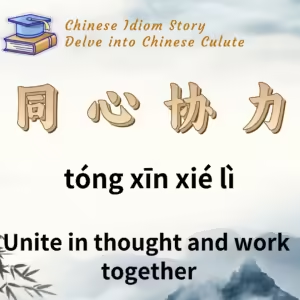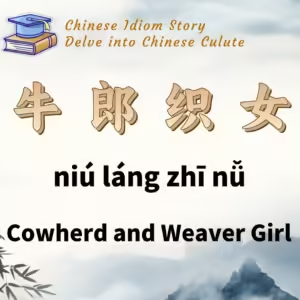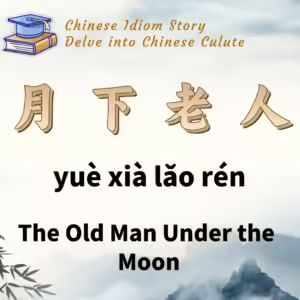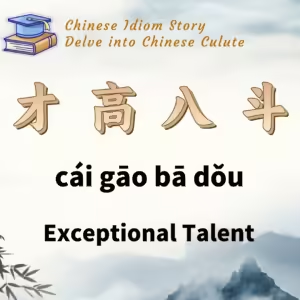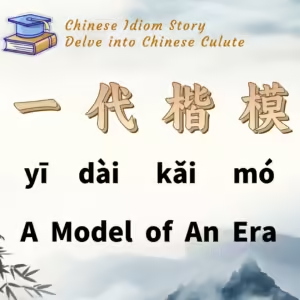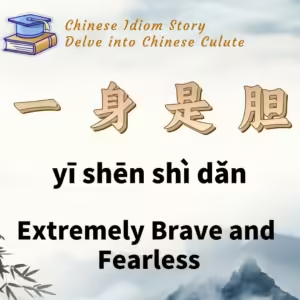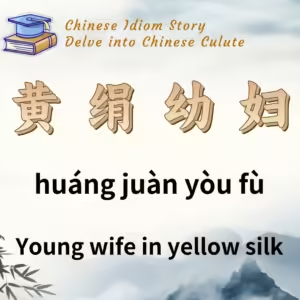
Chinese Idiom: 黄绢幼妇 (Huang Juan You Fu)
English Translation: Young wife in yellow silk
pīn yīn: huáng juàn yòu fù
Idiom Meaning: This idiom describes someone with exceptional literary talent.
Historical Source: From the Ming Dynasty novel 三国演义 (Romance of the Three Kingdoms) by Luo Guanzhong.
Idiom Story:
During the Eastern Han Dynasty, in the region of Shangyu, Zhejiang, there lived a young girl named Cao E. Tragically, her father drowned in the river, and in her desperate search for his body, Cao E also drowned. This story quickly spread, imbued with superstitious significance, and Cao E became a model of filial piety in feudal society.
To honor her devotion, the local magistrate erected a commemorative monument known as the Cao E Stele. It is said that the inscription on the stele was composed by a young boy named Han Danchun, who was only 13 years old at the time. In front of a gathered crowd, he composed the text with remarkable skill.
The renowned writer Cai Yong happened to pass through Shangyu and decided to see the stele. Arriving in the evening, he touched the stone and read the inscription, then wrote eight large characters on the back: “黄绢幼妇外孙臼” (Young wife in yellow silk, external grandson’s mortar). At the time, no one understood the meaning of these characters.
The next day, Cao Cao and his clerk Yang Xiu visited the Cao E Stele. Cao Cao asked Yang Xiu if he understood the meaning of the eight characters. Yang Xiu replied that he did but asked Cao Cao to think about it first. After traveling thirty miles, Cao Cao finally grasped the meaning and suggested they both write down their interpretations.
Yang Xiu wrote, “黄绢, 色丝也 (Huang Juan, color silk), this corresponds to the character ‘绝’ (absolutely); 幼妇, 少女也 (young wife, young girl), this corresponds to the character ‘妙’ (wonderful); 外孙, 女之子也 (external grandson, daughter’s son), this corresponds to the character ‘好’ (good); 臼, 受辛也 (mortar, enduring hardship), this corresponds to the character ‘辞’ (words).” The meaning he derived was “绝妙好辞” (absolutely wonderful words).
Cao Cao, upon reading Yang Xiu’s interpretation, realized that his own understanding was exactly the same. He was deeply moved and remarked to Yang Xiu, “Your talent surpasses mine!”
As a result, the phrases “黄绢幼妇” and “绝妙好辞” became synonymous with high literary talent and excellence in poetry, celebrating those who possessed such extraordinary skills.

